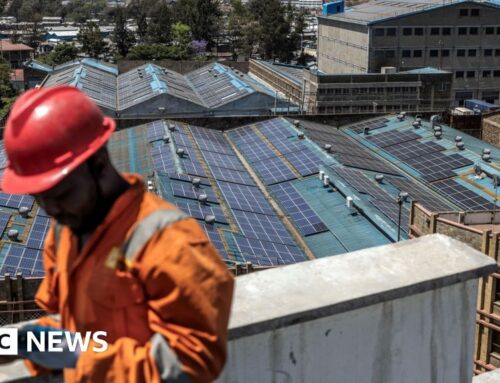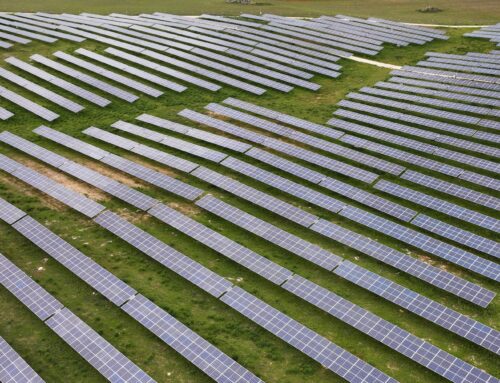Five faculty members join the Institute of Energy and the Environment
October 7, 2025
UNIVERSITY PARK, Pa. — The Institute of Energy and the Environment (IEE) has welcomed five new faculty members to its community. Their expertise spans artificial intelligence, water treatment, marine ecosystems, sustainable buildings and solar cell efficiency, strengthening IEE’s interdisciplinary approach to addressing complex challenges. By uniting diverse perspectives, IEE fosters collaborations that can address problems from multiple angles.
Bruce Logan, director of the Institute of Energy and the Environment, said the addition of these researchers expands the University’s capacity to address energy and environmental challenges in ways no single discipline could accomplish alone.
“IEE’s strength lies in recruiting brilliant researchers who are eager to take on urgent and complex challenges,” Logan said. “By investing in interdisciplinary research and hiring faculty who thrive in collaborative environments, we’re accelerating research that can make a real difference.”
The new IEE faculty are:
Onur Apul is an associate professor of civil and environmental engineering in the College of Engineering. His research focuses on water treatment and contaminant removal, especially through carbon-based filtration. He also studies the life cycle of treatment processes to prevent contaminants from leaching back into the environment. That work includes finding ways to treat, regenerate or contain used filter materials. Apul’s projects include thermal regeneration of filters, nanobubble technology for aeration and new physicochemical methods to improve filter efficiency and contaminant removal.
Ivy Asuo is an assistant professor of materials science and engineering in the College of Earth and Mineral Sciences. Her work focuses on developing affordable, energy-related materials, especially for solar cells and clean energy. She also translates scientific advances into practical solutions for regions with abundant sunlight but limited energy access. She investigates how processing conditions impact device performance by combining rapid, automated material production with real-time optical analysis of semiconductor thin films during their formation. Her projects also include developing materials for light-emitting diodes, indoor energy harvesting and green hydrogen production, and creating passive coatings to improve hydrogen storage with existing infrastructure.
John Majoris is an assistant professor of biology in the Eberly College of Science. His research examines how variation in early life traits affects dispersal and population dynamics in marine ecosystems. He focuses on the larval stage of coral reef fishes, a critical period that influences survival, recruitment and connections between populations. By studying larval biology and dispersal, his work informs conservation strategies to sustain marine biodiversity and ecosystem resilience. His broader interests include marine ecology, animal behavior, sensory biology and aquaculture, with an emphasis on how animals adapt to and interact with their environments.
Esther Obonyo is a professor in the School of Engineering Design and Innovation and the Department of Architectural Engineering in the College of Engineering. Her research focuses on sustainable and resilient building design, including low-carbon materials, public health, climate change adaptation, intelligent systems and social impact in disaster-prone communities. She bridges engineering, public policy and global partnerships to advance healthier, safer and more sustainable built environments worldwide.
Feng Tao is an assistant professor in the Department of Informatics and Intelligent Systems in the College of Information Sciences and Technology. His research uses computer models, big data and artificial intelligence to study soil carbon dynamics and help address climate change. He focuses on “physics-informed” artificial intelligence (AI), which integrates physical principles and earth science knowledge into machine learning models. The goal is to help AI not just recognize patterns, but understand the underlying processes of the earth system, especially for predicting soil behavior that affects the climate.
Search
RECENT PRESS RELEASES
Related Post




